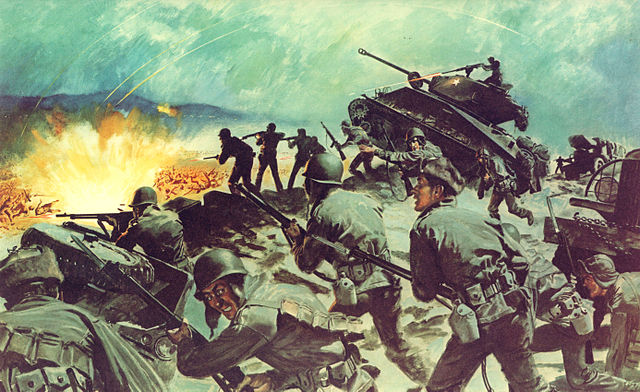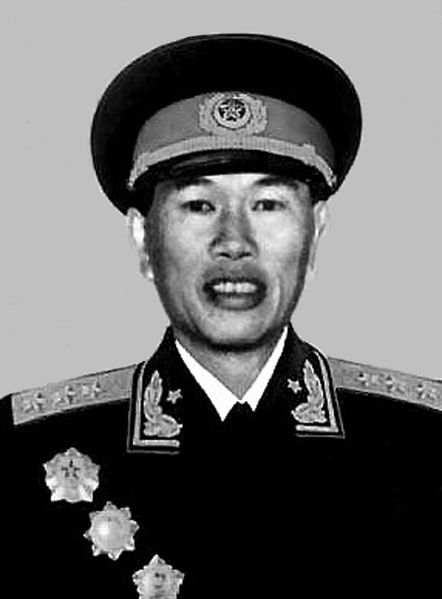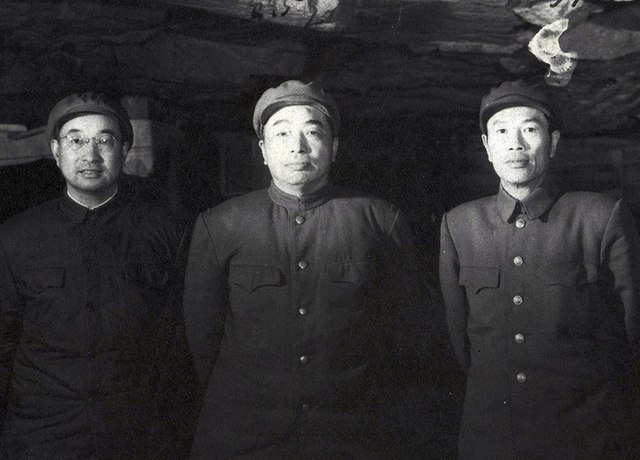The Battle of Chipyong-ni, also known as the Battle of Dipingli, was a decisive battle of the Korean War that took place from 13 to 15 February 1951 between US and French units of the US 23rd Infantry Regiment and various units of the Chinese People's Volunteer Army (PVA) around the village of Chipyong-ni. The result was a United Nations Command victory. The battle, along with the Third Battle of Wonju, has been called "the Gettysburg of the Korean War".
A US Army artist's illustration of the battle
French veterans of the Battle of Chipyong-ni receive flags from South Korean soldiers during a victory ceremony in 2012.
The People's Volunteer Army (PVA), officially the Chinese People's Volunteers (CPV), was the armed expeditionary forces deployed by the People's Republic of China during the Korean War. Although all units in the PVA were actually transferred from the People's Liberation Army under the orders of Chairman Mao Zedong, the PVA was separately constituted in order to prevent an official war with the United States. The PVA entered Korea on 19 October 1950 and completely withdrew by October 1958. The nominal commander and political commissar of the PVA was Peng Dehuai before the ceasefire agreement in 1953, although both Chen Geng and Deng Hua served as the acting commander and commissar after April 1952 following Peng's illness. The initial units in the PVA included 38th, 39th, 40th, 42nd, 50th, 66th Corps; totalling 250,000 men. About 3 million Chinese civilian and military personnel had served in Korea throughout the war.
First commander and commissar of the PVA Peng Dehuai (1950–1952)
Second commander and commissar of the PVA Chen Geng (1952)
Third commander and commissar of the PVA Deng Hua (1952–1953)
Three commanders of the PVA during the Korean War. From left to right: Chen Geng (1952); Peng Dehuai (1950–1952); and Deng Hua (1952–1953).






